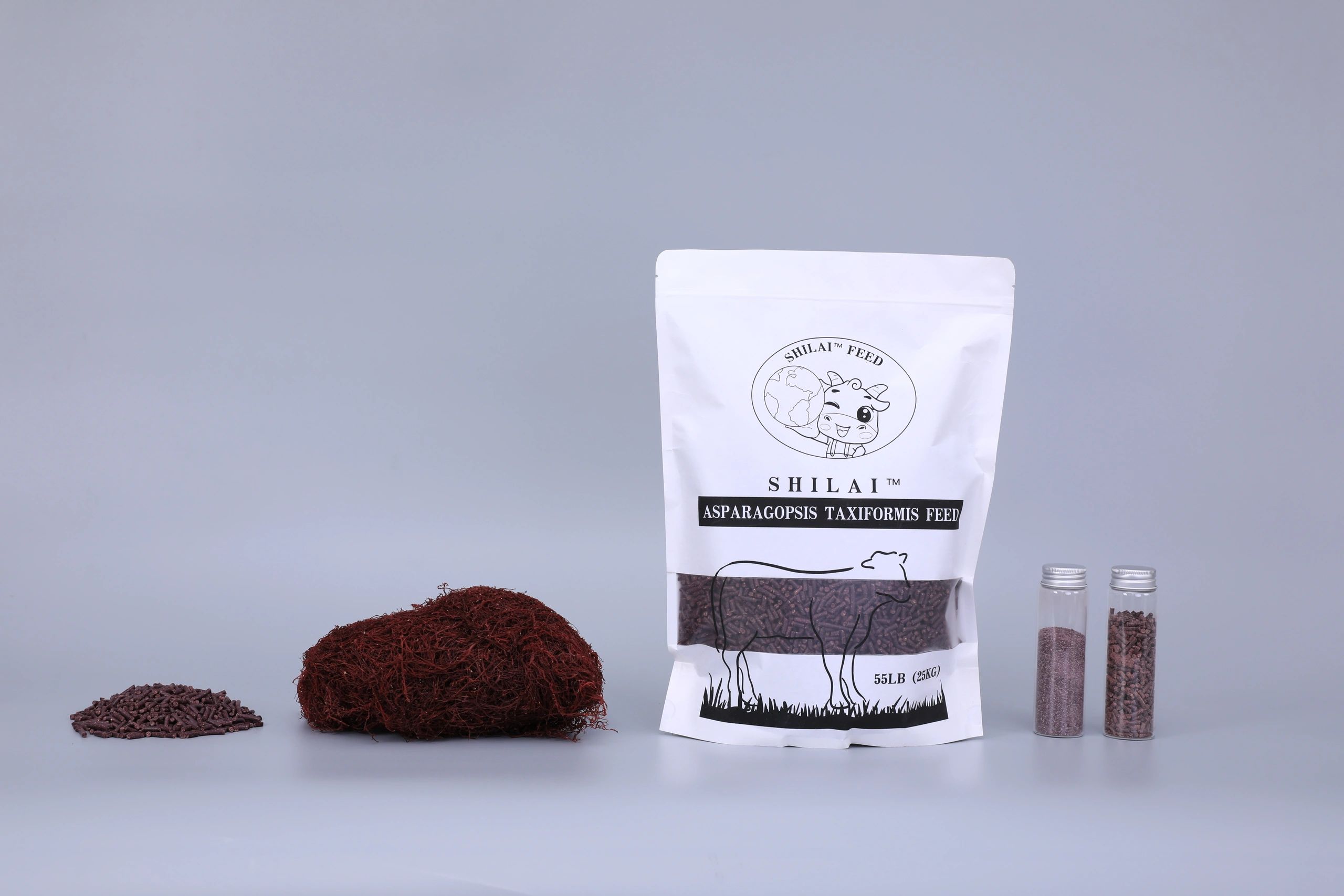
The global agricultural sector is a major source of greenhouse gas emissions, especially from livestock farming.
Because methane traps far more heat per molecule than carbon dioxide, its emissions are particularly harmful to the climate.
The red seaweed Asparagopsis taxiformis is under study for its capacity to reduce methane emissions from livestock digestion.
The alga carries a bioactive agent that inhibits the rumen microbes responsible for methane, lowering emissions from animals.
Adding Asparagopsis taxiformis to feed rations has yielded encouraging outcomes in early trials, pointing to a practical route for cutting agricultural greenhouse gases.
- Beyond reducing methane, Asparagopsis taxiformis presents multiple ancillary benefits for livestock systems.
- Better feed efficiency
- Opportunities for economic growth in rural communities
More evidence and development remain essential, but Asparagopsis taxiformis offers considerable potential for sustainable emission reduction.
Realizing the Opportunity of Asparagopsis taxiformis Powder in Animal Nutrition
Asparagopsis taxiformis powder or extract could transform animal nutrition and feed strategies across livestock sectors.
The species supplies both nutritional elements and bioactives that contribute to enhanced livestock performance.
Incorporating A. taxiformis powder into feed blends has been shown to reduce methane emissions in trials while also supplying key micronutrients.
Additional controlled studies are essential to determine ideal inclusion rates, processing methods, and safety for scale-up.
Asparagopsis taxiformis as a Catalyst for Sustainable Animal Farming

The species is increasingly seen as an intervention to lessen the environmental footprint of conventional livestock production.
When included in animal diets, the seaweed’s methane reductions could materially shrink farm greenhouse gas footprints.
Research suggests the seaweed can additionally support better animal health and production performance under certain conditions.
Broader and longer studies are essential for confirmation, although early evidence is strongly positive.
Asparagopsis-Based Feed Supplements for Methane Cuts
The species offers a promising mechanism to curtail methane emissions originating from ruminant digestive processes.
The mechanism involves the seaweed’s compounds blocking or inhibiting the microbes that produce methane in the rumen.
- Experimental studies have reported large percentage reductions in methane when Asparagopsis is included in diets.
- Deploying Asparagopsis as a dietary additive represents an environmentally conscious mitigation tactic.
- Ranchers and livestock operators are showing heightened interest in testing Asparagopsis in diets.
Asparagopsis: Seaweed Fueling Sustainable Change in Animal Agriculture
Asparagopsis taxiformis represents a marine solution that could help transform how methane is managed in livestock systems.
- Inclusion of the seaweed in animal feeds produced significant methane cuts in research trials with clear climate implications.
- This advancement could support sustainable food systems by reducing emissions without compromising animal nutrition.
As climate policy and industry responses develop, Asparagopsis offers a promising option to reduce livestock methane emissions.
Enhancing the Efficacy of Methane-Cutting Feeds Containing Asparagopsis taxiformis
Studies concentrate on ideal handling, formulation, and application rates to make A. taxiformis-based feeds most effective.
The Science Behind Asparagopsis taxiformis's Methane-Lowering Effects
The underlying science ties the seaweed’s compounds to suppression of methanogenic microbes in the rumen, cutting methane formation.
Researchers point to bromoform as a primary bioactive in Asparagopsis that suppresses methanogens, with continued evaluation of long-term impacts.
Designing Feed Blends with Asparagopsis to Enhance Farm Sustainability
Asparagopsis’s nutritional profile and methane-cutting bioactives make it an attractive candidate for inclusion in modern feed formulations.
Formulating with Asparagopsis can enhance diets via added nutrients, better digestion, and possible reductions in pathogenic microbes.
A Sustainable Future Built on Asparagopsis taxiformis
Asparagopsis taxiformis is emerging as a notable marine-derived option to help address climate and environmental challenges in food systems.
- In addition, the seaweed contributes essential nutrients and beneficial compounds to diets.
- Experts across sectors are mobilizing to research Asparagopsis applications in both marine and land-based food systems.
Integrating Asparagopsis taxiformis into existing practices could produce meaningful reductions in the environmental impacts of agricultural activities.
Asparagopsis Feed Additive: Benefits for Health and Productivity
Asparagopsis is being noted for its ability to reduce methane while also supporting animal health and production metrics.
Findings indicate the seaweed may improve digestive efficiency and feed conversion, positively affecting growth metrics.
Supplementation may confer antioxidant or immune benefits that bolster animal defenses and reduce susceptibility to illness.
As the call for sustainable production grows, Asparagopsis is well positioned to play an important role as validation and scale advance.
Asparagopsis and Methane Reduction: A Path to Carbon Neutrality
Facing intensifying expectations to curb emissions, farming may turn to Asparagopsis as part of its mitigation toolkit.
- Studies attribute the methane decline to interference with methanogenic microbes by compounds present in the seaweed.
- The experimental record includes promising findings of large methane cuts when Asparagopsis is incorporated into feeds.
Asparagopsis-based feeds may enable a transition to more climate-friendly and resilient agricultural practices.